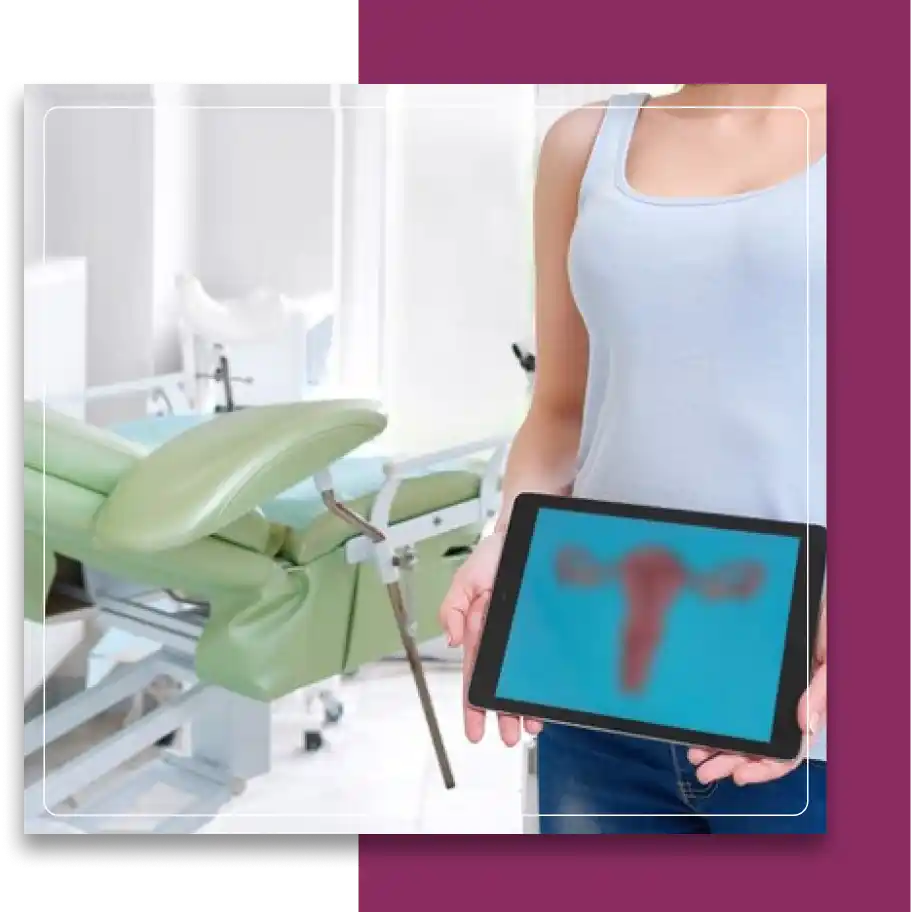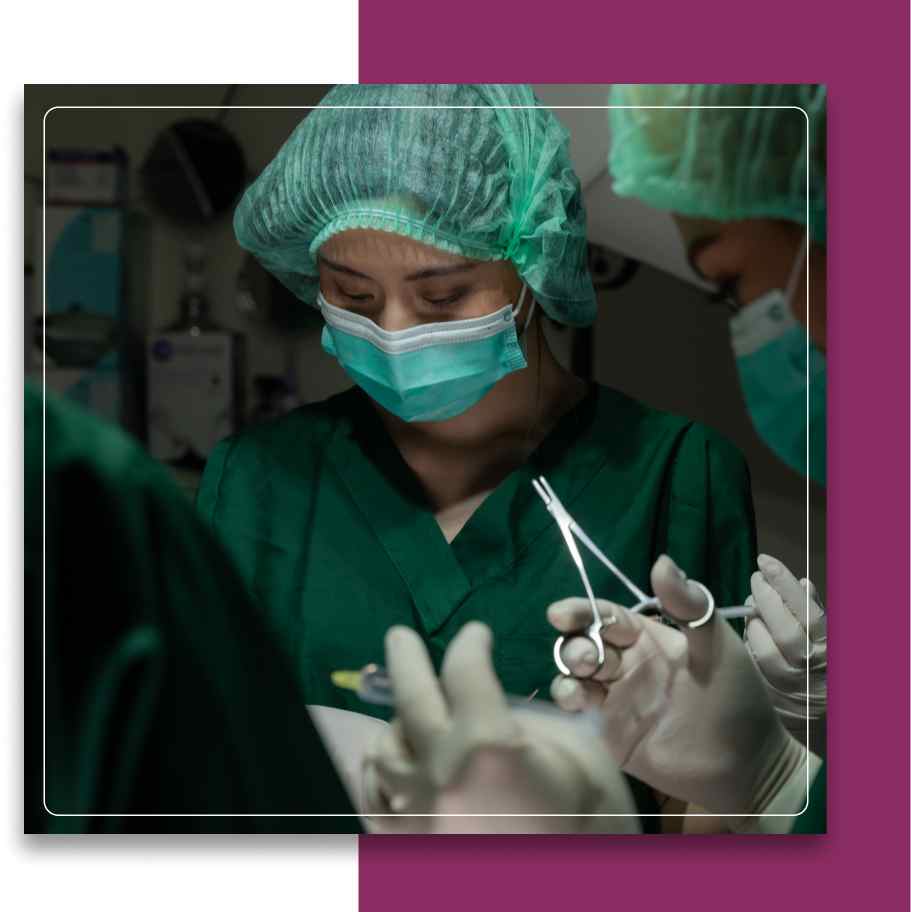Uterine Cancer
Dr. Mukti Mukherjee
[12+ Years Experience]
Radiation Oncologist In Kolkata
Uterine Cancer Doctor in Kolkata
Uterine cancer (or womb cancer) is a critical health condition that occurs when cells in the uterus grow uncontrollably. This condition primarily affects the female reproductive system, causing significant health challenges for women worldwide. It’s most common in postmenopausal women. If you’re looking for an alternative treatment option to surgery, consult Dr. Mukti Mukherjee for specialized, safe, and effective uterine cancer radiation therapy in Kolkata.
Types of Uterine Cancer
Endometrial Cancer
The most common type of uterine cancer, accounting for about 95% of cases. It originates in the uterine lining (endometrium) and requires early detection for successful treatment. Most common variety is adenocarcinoma.
Clear cell carcinoma, sarcomatoid varieties are less common but more aggressive.
Uterine Sarcoma
It’s a rare and aggressive cancer that develops in the uterine muscle or supportive tissues. This type demands specialized medical attention and advanced treatment strategies since it’s harder to treat than endometrial cancer.

Reach out: Your path to quality care starts here
58, Canal Circular Rd, Kadapara, Phool Bagan, Kakurgachi,
Kolkata – 700054
Let’s Talk
Symptoms
Post-menopausal bleeding from vagina
Irregular vaginal bleeding (unexpected menstrual changes)
Pelvic pain (discomfort in the lower abdominal region)
Painful intercourse
Trouble or blood in urine
Unusual vaginal discharge
Symptoms affecting the bowel or bladder (e.g., blood in stool/urine, difficulty urinating)

Risk Factors

Women who never been pregnant

Age over 50 years

Family history

Genetic conditions, such as Lynch syndrome

Exposed to previous hormone therapy (Estrogen replacement therapy)

Overweight

High-fat diet consumption

Chronic ailments like diabetes, ovarian disease

Prolonged use of tamoxifen
Evaluation
Physical exam
Dilation and curettage (D&C)
Endometrial biopsy
Pelvic ultrasound (trans-vaginal sonography)
Hysteroscopy
MRIs, CT Scan, X-rays
Blood test
Genetic testing


Management
Management of uterine cancer often depends on the cancer’s stage and the patient’s overall health. Your doctor will thoroughly assess and determine the suitable treatment option for your condition.
Surgery
Radiation therapy (External beam radiation therapy & brachytherapy)
Chemotherapy

Meet Dr. Mukti Mukherjee
Dr. Mukti Mukherjee, a recognized oncology specialist, offers advanced radiology therapy. With 12+ years of experience in uterine cancer radiation therapy in Kolkata, she provides compassionate, personalized care to each patient.
Frequently Asked Questions
What are the uterine cancer complications?
Complications of uterine cancer can include the spread of the cancer to other parts of the body, such as the lungs, liver, and bones, infertility, or early menopause.
What is the uterine cancer growth rate?
The growth rate of uterine cancer varies depending on the type of cancer and the stage of the disease. However, some uterine cancers can overgrow and multiply.
What foods should I avoid with uterine cancer?
Avoid processed foods, excess sugar, and high-fat diets. A balanced diet rich in fruits, vegetables, and whole grains may support overall health.
Are younger women at risk?
While more common in postmenopausal women, younger women can also develop uterine cancer.
How often should I get screened?
Annual gynecological check-ups and discussing personal risk factors with an oncologist are recommended. You can als discuss with Dr. Mukti Mukherjee for radiation oncology treatment and post-treatment consultation.
